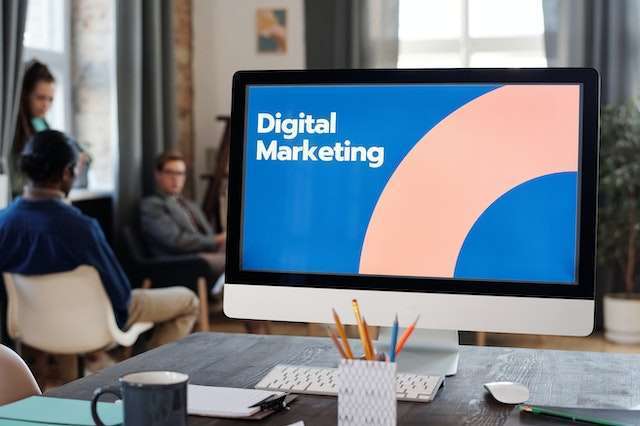SEO in Digital Marketing: Is It Still A Must?
Artificial Intelligence (AI) tools have been gaining attention these days due to their capabilities to do tasks smarter, faster, and longer than any human can. As a result, many individuals have been anxious about whether these technologies will replace their careers.
How about search engine optimization (SEO) in digital marketing? The good news is that AI is unlikely to replace and make SEO obsolete now and in the future for several reasons. AI tools can’t only replicate the human touch but also offer enough accurate, up-to-date results. Using AI-generated SEO content to manipulate rankings in search engine results pages (SERPs) is also against Google’s Helpful Content Update’s spam policies.
That’s why SEO will remain relevant today and in the foreseeable future. While it’s true that AI and other technological advancements may transform it, it’ll still be the best way to reach a digital audience nowadays. Consider the following reasons.
Website Ranking Factors Keep Changing
The ranking requirements that websites need to follow change many times a year. Let’s use Google’s Helpful Content Update, for example. It’s a large and new algorithm update rewarding webpages with high-quality content written for people rather than search engines. It’s openly disclosed through an official publication of a history containing confirmed ranking algorithm updates.
The problem is that many SEO goal posts will be moved every time Google makes algorithm changes. Even worse, Google doesn’t usually disclose specific details on what has changed and how it’s given since it’s not in their best interest. Note that if all websites knew precisely how to rank first in SERPS, then it would be impossible for Google to rank them in order. In other words, there’s no need to put a website in rank one if everyone is good enough to be in that position.
That’s why Google opaquely relays ranking algorithm specifics to the public. It’s also the very reason why you need SEO experts to stay ahead in the game. Remember that not all companies are the same, so know your needs well and choose smartly. It also helps if the company you hire knows the latest trends in your target area. For example, if you’re in Sydney, looking for an agency that focuses on on-site and off-site SEO techniques, make sure to look for the Best SEO Agency in Sydney – Impressive.
Google tends to launch these updates several times per year. In 2022 alone, they reportedly made ten changes in their algorithms. They do these for many reasons. First, these changes can help enhance the search engine’s search function with different technologies or processes. For example, in 2019, Google added a deep learning tool called bidirectional encoder representations from transformers (BERT). It interprets a user’s intent (the purpose of their search query) more accurately, offering more relevant search results.
Second, Google must frequently make updates to determine and address aspects of its algorithms that spammers can easily manipulate. Third, Google, like any organization, wants its search engine to offer a positive UX, so it continuously improves its algorithm to meet user needs.
Related:
- The Role of SEO in Boosting Online Sales
- The Quick and Easy On-Page SEO Checklist
- How to Build a Solid SEO Strategy for Small-Budgeted Businesses
Social Media Traffic Isn’t Enough
One of the reasons why SEO is said to be dying is due to social media traffic. Facebook once had a heyday around five years ago or so. Compared to Google, they drew more visitors to publishers at that time, but that was reversed in 2017. This 2023, social media traffic still dwindles while organic search traffic dominates. The thing is, it’s neither an either nor anyway.
Both SEO and social media work hand in hand these days. While it may be less apparent than that time when clear indicators of the social search were still Google+ and authorship markup, they have been working effectively together nowadays. After all, search remains inherently and naturally social.
Social media and SEO have different yet complementary roles. Specifically, the former helps discover trends and new things. In contrast, the latter is typically needed in the final stages of the customer journey, since searching is impossible if you’re not even sure whether it exists in the first place.
In other words, customers have to discover a brand on social media before taking an interest in it and searching for it. Once they buy, the conversion will either be attributed to a search or overvalue the last click.
However, note that many customers are still traditional. They rarely buy on social media directly and instead start their journey elsewhere, like print media (newspapers or magazines), broadcast media (TV or radio), and real-life word-of-mouth. They also have a few “touchpoints” before deciding to search, which only becomes transactional only toward the end. This search query often starts as informational and then navigational.
Overall, leveraging both of them together comes with a lot of perks. For example, Facebook updates are getting more public, Twitter can help improve a brand’s visibility directly on Google, and social media trends attract links more naturally. Without these benefits, a brand will likely invest much in outreach and other PR efforts.
Final Thoughts
SEO is still a must this 2023. It remains the most efficient way to increase website traffic from organic search. Even if your company doesn’t depend on online traffic, SEO can still benefit you by increasing your company’s online visibility, and that means more opportunities to convert prospects into your customers.





